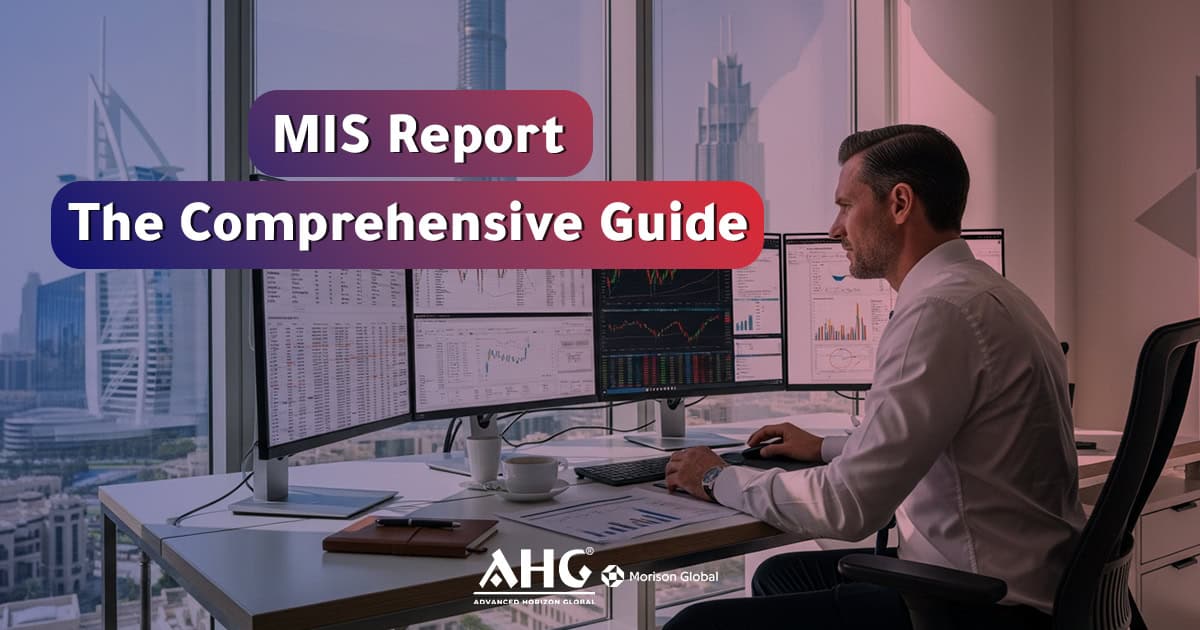MIS Report Meaning
MIS, or Management Information System, is simply a system that helps AHG spot issues, delays, or weak points that might slow down a business. It gathers data from different departments, organizes it, and turns it into clear reports that decision-makers rely on. In simple terms, MIS Report Meaning is all about understanding what’s happening inside the company so leaders can act wisely. It combines software, hardware, and structured processes to produce accurate insights. Top management usually checks these reports before making any major business move. In this article, we break down the MIS Report Meaning along with its uses and main types in a way that’s easy to grasp.

MIS reports give a snapshot of daily business activities and help AHG analyze how well the company is performing. They guide management in reviewing progress, spotting trends, and fine-tuning strategies. Since every business handles countless transactions each day, these reports record the most important ones, such as sales summaries or performance updates. That’s why small business owners need to understand how these reports work. MIS reports usually rely on automatically collected data from multiple sources, including digital systems and staff inputs. They cover various departments and help highlight problems, pressure points, or new opportunities. Each business may need a different type of MIS report depending on what information it wants to monitor and why.
Why should a firm use MIS?
Businesses rely on MIS because it brings several important advantages that make decision-making smoother and more reliable. MIS Report Meaning becomes clear when you see how these systems help AHG create accurate reports that management can trust without second-guessing. By reducing the errors that often come with manual data entry, MIS boosts efficiency and gives managers confidence in the numbers they review. It also keeps all financial and operational records organized in a clean and systematic way, saving valuable time when handling large amounts of information.

Another major benefit is the smooth flow of information across all departments. With MIS, AHG can quickly trace where any piece of information came from and assign responsibility when needed. As business data becomes more complex with new technologies, MIS makes everything easier to manage by simplifying the process and keeping information clear, structured, and accessible.
Benefits of MIS Reports
MIS Report Meaning becomes even clearer when you look at how these reports help a business run smoothly and make smarter choices. At AHG, MIS reports offer several practical benefits that support managers and business owners in keeping everything on track.
- Improved Decision-Making by giving managers accurate, real-time data they can rely on before taking any major step.
- Increased Efficiency through automated data collection and analysis, reducing manual mistakes and saving valuable time.
- Better Financial Planning by supporting budgeting, forecasting, and managing costs more effectively.
- Enhanced Productivity by highlighting performance gaps and helping teams streamline their daily tasks.
- Regulatory Compliance by keeping organized records that simplify audits and help businesses meet legal requirements.
What is MIS reporting and how does it work?
MIS reporting refers to analyzing and presenting business data in a clear and organized way so management can see the full picture of how the company is performing. It goes beyond basic financial statements and brings together information from all departments, helping AHG maintain smooth coordination and proper execution of plans. By understanding MIS Report Meaning in this context, it becomes easier to see how these reports support smart decision-making. MIS reporting tracks daily activities, evaluates employee and business performance, and monitors financial health, customer interactions, and other key areas. It also highlights gaps between what was planned and what actually happened, offering practical suggestions to fix any issues before they become costly.

The exact reporting process can differ from one company to another. Some firms rely on automated digital data, trend analysis, or information provided directly by their teams. Many MIS reports are created monthly or quarterly by different departments and then shared with management for review. When these reports are properly structured, they help identify profitable areas, guide expansion decisions, measure operational efficiency, and point out any areas that need more attention or resources.
Types of MIS Reports
MIS reports come in different forms, and each type helps AHG understand a specific part of the business more clearly. These reports also help explain MIS Report Meaning in a practical way, showing how they guide better decisions and keep the business on the right track.
- Summary Reports give a quick snapshot of the company’s main activities, focusing on key figures like total sales, revenue, and overall performance. They bring together the most important data to show a simple, complete view of the financial situation.
- Trend Reports look at how the numbers change over time, making it easier to spot patterns and predict what might happen next. By comparing past and present results, they show whether the business or any department is moving in the right direction.
- Exception Reports point out anything unusual in the company’s performance. They highlight issues, errors, or sudden changes so management can act quickly and prevent small problems from becoming big ones.’
- On-Demand Reports are created whenever management needs specific answers. They provide targeted information for urgent decisions or special inquiries, making sure the right data is available at the right moment.
Examples of MIS Reports
MIS reports come in many forms, and each type helps AHG understand how the business is performing from different angles. These examples also make the MIS Report Meaning clearer by showing how real data turns into useful insights that support smart decision-making.
- Sales Reports break down how well products, regions, or sales teams are performing. They reveal important details like total revenue, customer growth, sales pipeline status, conversion rates, product success, and regional sales trends.
- Inventory Reports keep track of stock levels, product movement, and turnover rates. They help identify slow-moving items, highlight best sellers, and give a clear picture of what’s available in inventory at any moment.
- Financial Reports summarize key financial information through profit and loss statements, cash flow reports, balance sheets, and financial ratios. These reports help management and stakeholders understand the company’s financial health and compare actual performance with the planned budget.
Conclusion
In the end, understanding MIS Report Meaning is essential for any business that wants to stay organized, make smart decisions, and keep its operations running smoothly. With the right MIS reports, companies can spot problems early, strengthen their financial planning, and improve overall performance. AHG helps businesses make the most of these reports by turning raw data into practical insights that support growth and long-term success.
Managing your finances in the UAE can be challenging, but AHG makes the process simpler and more reliable. With strong experience across accounting, tax, and financial advisory, our team is ready to support you with clear guidance and professional service every step of the way. If you need expert assistance, AHG Legal Accounts is here to help. Feel free to reach out to us anytime, and our team will be happy to assist you.
Contact Us

